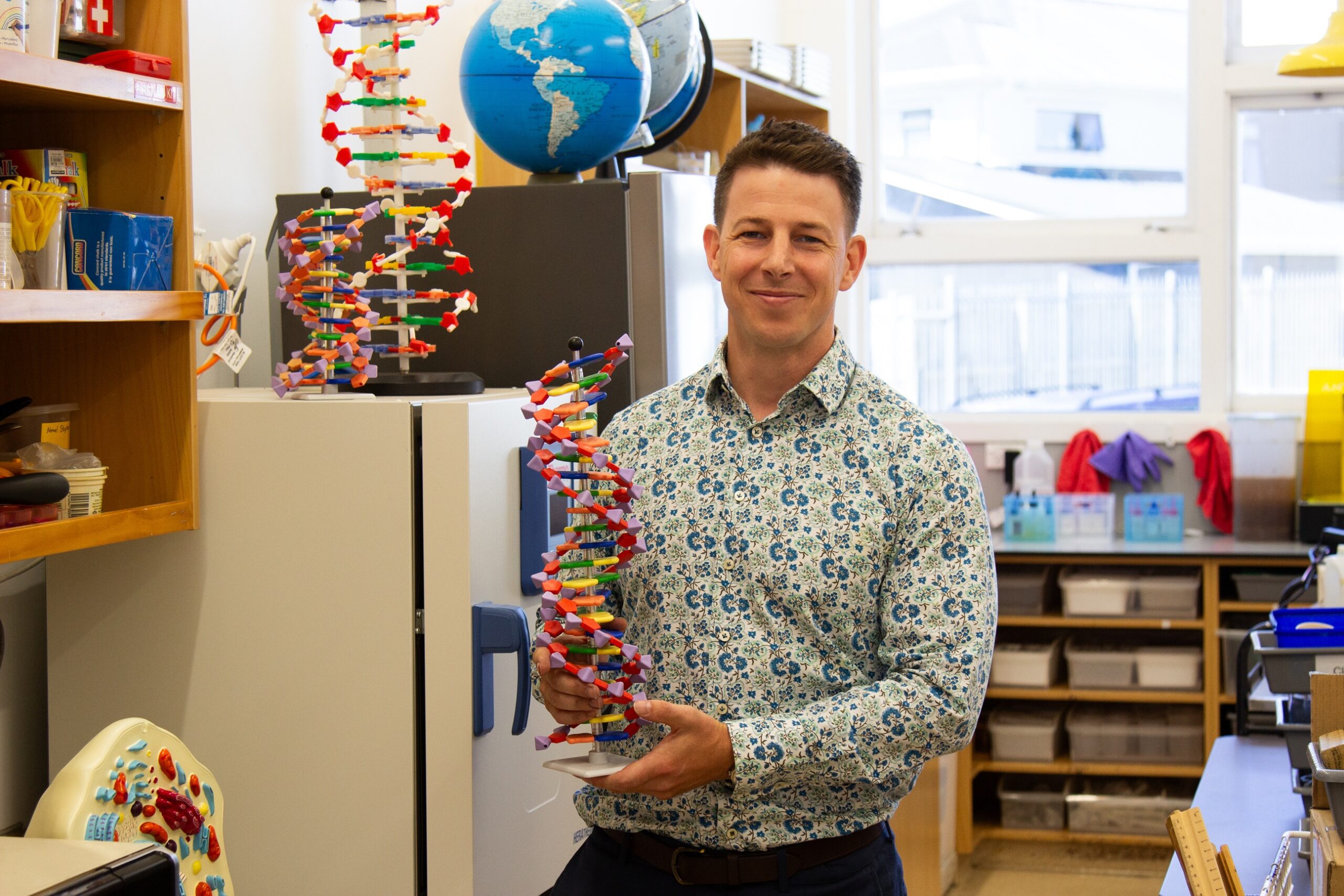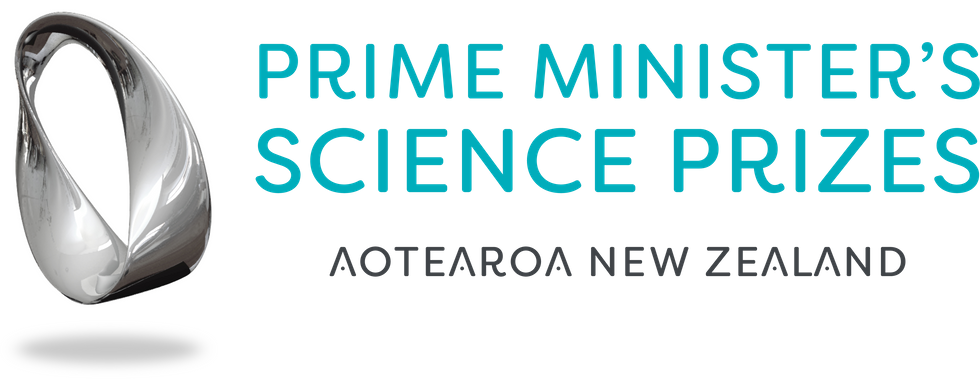Winning science teacher making the invisible visible to his students

MEDIA RELEASE: TE PUIAKI KAIWHAKAAKO PŪTAIAO SCIENCE TEACHER PRIZE
Te Puiaki Kaiwhakaako Pūtaiao the Prime Minister’s Science Teacher is Dr Aidan Kiely, a science teacher and Head of Science at Aorere College in South Auckland.
Aidan was awarded this Prize for his skilled and committed teaching, focused on achieving equitable outcomes in science education.
Before Aidan became a science teacher, he researched the molecular mechanisms of fruit flies, which was “essentially part of a big programme that was trying to make a machine that could smell”.
Despite not setting out to become a teacher, Aidan says he has always been passionate about education and sharing scientific ideas with others.
He says his approach to teaching is “about making all those invisible things as visible as possible to the biggest range of people”.
Aidan says this approach means being adaptive to who he is teaching and what he is teaching so he can connect content to people.
“It makes them want to be interested and ask more questions about it so that, ultimately, they can see themselves as successful scientists, whether they continue on in science as a career or just enable them to engage with their communities.”
He says his love for science comes from a sense of wonder as to how and why things happen.
Commitment to equity and making science personal
Aidan says he is committed to educational equity, encouraging as many students as possible to engage in science.
He ensures that his education programmes are developed to support students and the issues that affect them, “making it important and visible so that science is not something that someone else does.”.
He says that it is important that his community has more Māori and Pacific voices in areas like healthcare and urban planning, “and all sorts of other spaces that come from these science ideas”.
Aidan says that if students aren’t accessing science education that “captures them” early enough, these career paths can close off for them.
“That’s something that we’re really committed to – making sure that as many Māori and Pacific students opt-in to taking sciences through high school, and how we support them to be successful at university as well.”
Teaching leadership
In 2021, Aidan participated in the Science Teaching Leadership Programme, run by the Royal Society Te Apārangi.
He says that the programme, which includes a placement with a science-sector organisation, enabled him to have professional development and “the space that so often you don’t get as a teacher to reflect on science education”.
“To step away from the classroom for a little bit and really think about those values and attributes that go into making an effective science practitioner was hugely beneficial.”
Aidan has prioritised continuous learning to improve his teaching practice by gathering and analysing data on learning outcomes for his students. He has studied how to maximise motivation for students by giving them autonomy and agency in their learning.
Seeing science in real life
Aidan’s focus on engaging education has led his students to participate in projects with marine scientists, work with engineers to install sensors in beehives, and be part of a project restoring a local stream.
“It’s all about trying to connect these scientific ideas to real-world applications and provide as much rich opportunity to engage with science as we can.”
With a roll of 1600 students at Aorere College, Aidan and his team have faced challenges in getting students into the field. So, that’s why they decided to adopt a local stream close to the school.
Each year, all Year 9 students visit the stream twice and learn about the local environment, with the key question: ‘Could we live here now, knowing that Māori have lived here for hundreds of years before the school got here?’.
Aidan says that students mostly come to the conclusion that the answer is ‘no’, after observing the environment and seeing that it is not as clean and vibrant as it once was.
He hopes this lesson inspires his students to take further environmental action.
On their second visit, students carry out restorative action with projects like pest monitoring, rubbish clearing and awareness campaigns.
In the past six years, Aidan and his students have planted approximately 4,000 native plants along the banks of the stream.
He says this project has made a strong connection for his students between science being a thing they know and a thing they do.
Prime Minister’s Prize
Aidan says he is “privileged and proud” to have been awarded the Prime Minister’s Science Teacher Prize.
“Winning this prize will enable our school to invest in infrastructure and a plant nursery, which is really exciting as we look at how we can continue to support our local ecosystem but also to expand the opportunities for our students to learn skills as a future employment-based activity.”
He says the prize money will help pay for resources like wet-weather gear for students, so they can continue to learn outside during winter.
Aidan says it has been a privilege to teach Aorere College students for nearly ten years.
“Watching them grow as young people and staying in touch with many of them, some of whom have gone into science careers, many of whom have not, has been a real privilege.”
Aidan says he is grateful to the “wonderful teachers and mentors who have passed on their passion for science and for teaching.”
He says it’s exciting to pass this passion on to his own students.
